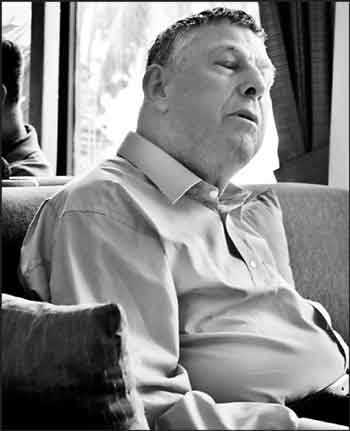Wednesday Feb 25, 2026
Wednesday Feb 25, 2026
Saturday, 29 December 2018 00:00 - - {{hitsCtrl.values.hits}}
 DABAL stands for Deaf and Blind Sri Lanka. Established in 2004, it resorts to new and innovative ways of getting donations that go beyond just corporate funding. It has so far been able to support 16 blind schools in the country, a lot considering the severe financial constraints it has had to put up with at a time of austerity in Britain. DABAL, has targeted the rural school.
DABAL stands for Deaf and Blind Sri Lanka. Established in 2004, it resorts to new and innovative ways of getting donations that go beyond just corporate funding. It has so far been able to support 16 blind schools in the country, a lot considering the severe financial constraints it has had to put up with at a time of austerity in Britain. DABAL, has targeted the rural school.
DABAL’s Chief Patron is Colin Low, Baron Low of Dalston. Born in 1942 in Edinburgh, he was left fatherless at the age of two and had to struggle to obtain a proper education. Initially educated in Scotland, he left for Oxford in 1961 and to Cambridge in 1965, becoming a lecturer in Law at Leeds University in 1968.
He was at the forefront of disability rights in these years. The National Federation for the Blind, the Association for the Blind and Partially Blind, and the National Bureau for Handicapped Students were some of the organisations he was involved with. Tony Blair’s government, which succeeded John Major’s, recognised all these efforts when it gave “stronger teeth” to the 1995 Act through the Disability Rights Commission of 1999. Baron Low later became Chairman of the Royal National Institute for the Blind in 2000. Six years later, he was approached by DABAL to be its patron. One year later, that is who he became.
DABAL has visited Sri Lanka frequently, but Baron Low was able to visit it only this year. When interviewed, he said that the interest shown by teachers and staff members at the blind schools he had visited (five in total, including the Ratmalana School and also schools in Kandy, Kandalama, Galle, and Matara) was incongruent with the funding that they desperately need and ended up getting.
“I’ve visited the subcontinent several times, but never here.” He felt the usual images associated with the country: The coconut trees, the tropical climate, the sun-baked coastlines, and the candid ever smiling people. Such optimism, however, barely if at all masks the glaring shortcomings of our education system for the differently-abled. That system, like the schools in it, is as he observed in “a basic state of repair.”